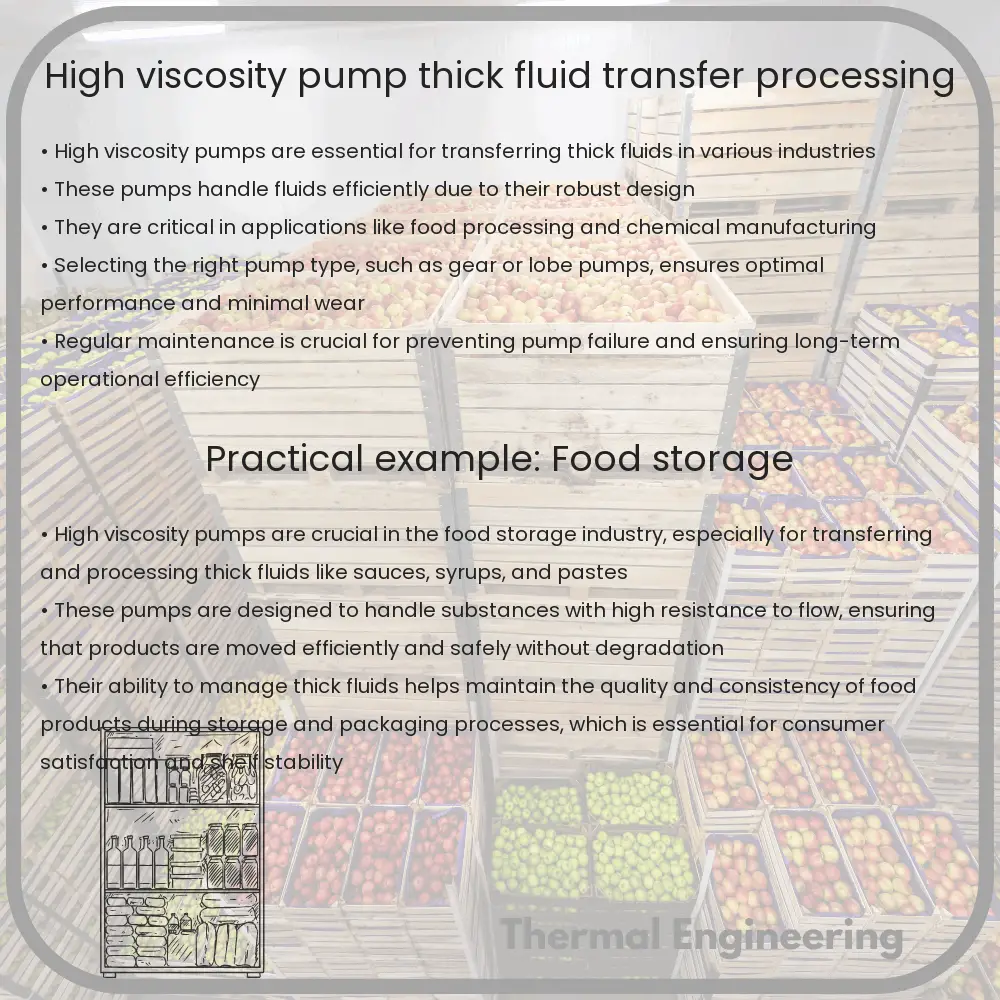Learn about high viscosity pumps, essential for transferring thick fluids in industries like food, pharmaceuticals, and oil.

Understanding High Viscosity Pumps for Thick Fluid Transfer & Processing
High viscosity pumps are specialized mechanical devices designed to transport or process fluids that have a dense, thick consistency. These pumps are crucial in many industries like food and beverage, pharmaceuticals, cosmetics, and heavy oils, where handling thick fluids like syrups, oils, creams, and lubricants is required. This article explores the basic principles, types, and uses of high viscosity pumps in industrial applications.
What is Viscosity?
Viscosity is a measure of a fluid’s resistance to gradual deformation by shear or tensile stress. It essentially describes how thick a fluid is. For engineers and industry professionals, understanding viscosity is critical because it affects the efficiency and selection of a pump suitable for handling particular fluids. High viscosity means a fluid is thick and flows slowly, while low viscosity means a fluid is thin and flows easily.
Types of High Viscosity Pumps
- Rotary Gear Pumps: These pumps operate with a minimal clearance between rotating gears and the pump’s casing. As the gears rotate, fluid is transferred from the inlet to the outlet, making them suitable for high viscosity fluids.
- Progressive Cavity Pumps: Consisting of a helical rotor and a stator, progressive cavity pumps create sealed cavities that move the fluid through the pump. This type is particularly effective for handling slurries and pastes.
- Lobe Pumps: With two or more lobes that rotate in sync on a shaft, these pumps handle viscous fluids while maintaining product integrity, commonly used in the food and pharmaceutical sectors.
- Peristaltic Pumps: They utilize a rotor with rollers or shoes that compress a hose or tube to move fluid. As the rotor turns, the fluid is pushed forward inside the tubing. This type is excellent for high viscosity fluids containing solids or sensitive materials.
Factors to Consider When Selecting a High Viscosity Pump
- Fluid Characteristics: Knowing the specific viscosity, corrosivity, and whether solids are present is essential.
- Pump Capacity: This refers to the volume of fluid the pump can handle efficiently, measured in gallons per minute (gpm).
- Pressure Requirements: Different applications require different pressure levels. Operators must choose a pump capable of achieving necessary pressures without compromising system integrity.
- Material of Construction: The pump materials should be compatible with the fluid to avoid corrosion, wear, and contamination.
Application of High Viscosity Pumps
High viscosity pumps find applications across various industries due to their ability to efficiently manage thick fluids. In the food industry, they transfer ingredients like honey or chocolate. Pharmaceutical applications often involve handling syrups and gels. In the petrochemical sector, they’re used for moving heavy oils and greases, which require careful handling to maintain product quality and equipment reliability.
Challenges in Handling High Viscosity Fluids
One primary challenge in transferring high viscosity fluids is the need for higher operating pressures, which can increase energy consumption and operational costs. Additionally, there may be issues related to cavitation—where vapor bubbles form in the liquid because of changes in pressure. Proper pump selection and operation are vital to minimize these challenges.
Conclusion
High viscosity pumps play a critical role in industrial processes by efficiently handling and transferring thick fluids. Understanding viscosity, selecting the appropriate pump type, and considering application-specific requirements are crucial for optimizing performance and extending the operating life of these devices. By addressing the unique challenges of high viscosity fluids, industries can achieve higher productivity and cost-efficiency in their operations.